WHAT DOES YOUR BODY LANGUAGE SAY ABOUT YOU AT INTERVIEW?
“The most important thing in communication is to hear what isn’t being said.” This quote from the so-called founder of modern management Peter Drucker never grows old. Yes, your words matter, but so does your nonverbal communication – how you are speaking and what message your body language is sending to your interviewer. Here are some of the stories you may not realise you are telling at interview as well as tips on what not to do *
Handshake
- Impress your interviewer on arrival with a firm handshake that shows you are confident and at ease. Maintain their grip for a couple of seconds before releasing their hand. Smile and maintain eye contact with them throughout your greeting, both of which show that you are comfortable in the situation.
- Avoid a handshake that is too firm, as this suggests you are controlling and dominant, while a weak handshake shows you may be lacking in confidence.
Posture
- The ideal interview posture is upright with your legs and arms uncrossed, which gives the appearance of confidence and reliability. When your interviewer asks questions, you may want to lean slightly forward in your chair towards them. This shows you are interested in what they are saying and engaged in the conversation.
- Try not to slouch and slump in your chair as this can make you appear uninterested and nervous. Crossing your arms and legs can indicate to your interviewer that you are anxious, defensive or bored. Fidgeting in your chair, with your hair or jewellery is also a big no-no. You are sending a signal that you are nervous or disinterested.
Facial Expression
- A warm smile at interview (when used at the right time) shows that you are confident, enthusiastic and in tune with the conversation. Laughter, when appropriate, is also a valuable tool that can help you connect with your interviewer.
- Adjust your expression when necessary. If talk turns serious, you may want to rethink the smile on your face to show you are capable of a sensitive and professional approach.
Eye Contact
- If possible, try to maintain good eye contact with your interviewer as this shows confidence and trustworthiness. In a panel interview, you’ll need to move your gaze from one interviewer to another to focus on the person asking the question(s).
- Avoid staring directly at your interviewer as this can appear threatening and unsettle them. Conversely, try not to look away from them too often, or look down, as this can suggest that you are nervous or uncomfortable.
Hand Gestures
- Hand gestures can send a positive message to your interviewer. Open hands indicate honesty, placing your hand on your heart shows you mean what you say, while steepling (placing the fingertips of both hands together and then forming an upward ‘V’ shape) is a sign of confidence.
- Some hand gestures are best avoided, such as clenched fists, or excessive movements which can indicate nerves or insecurity. You may want to consider placing your hands in your lap if you use them a lot when speaking.
Mirroring is an additional aspect of body language that is worth considering at interview. Although we often unconsciously mirror those close to us – their posture, gestures (as well as their tone of voice and language), in an interview you can deliberately use this technique to your advantage. Subtly reflecting your interviewer, e.g. leaning forward slightly after they have leant forward, can help you connect and reach mutual understanding.
Next time you are invited to interview, use your body language to tell a positive story that your interviewer wants to hear. It could take you to the next chapter of your career.
*Bear in mind that body language varies from one individual to another and also across cultures. What is acceptable in some cultural settings, e.g. direct eye contact, may be considered inappropriate and/or disrespectful in others.
If you’re looking for a new role, contact the professional team at Optimal Recruitment today on info@optimalrecruitment.com.au or 02 8416 4181.










